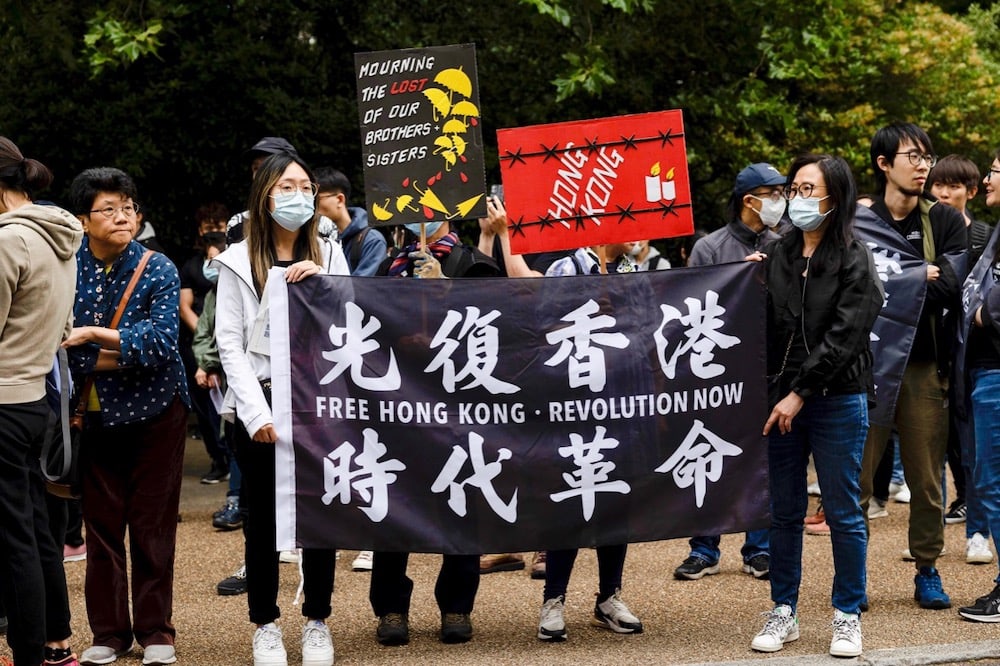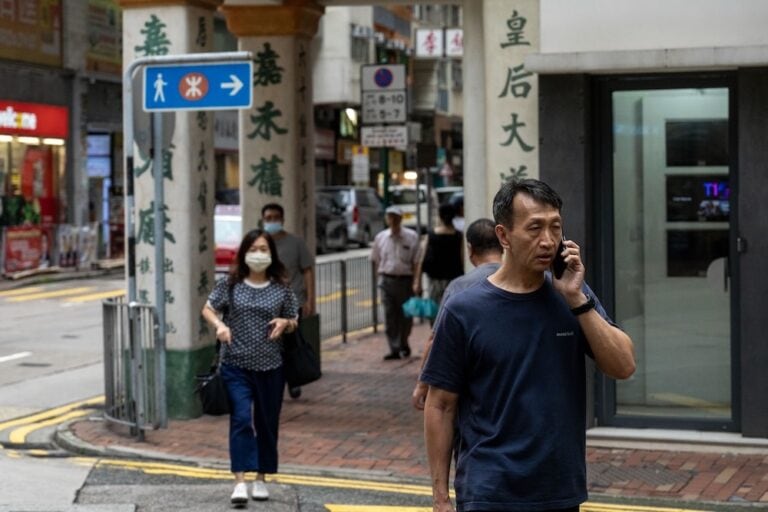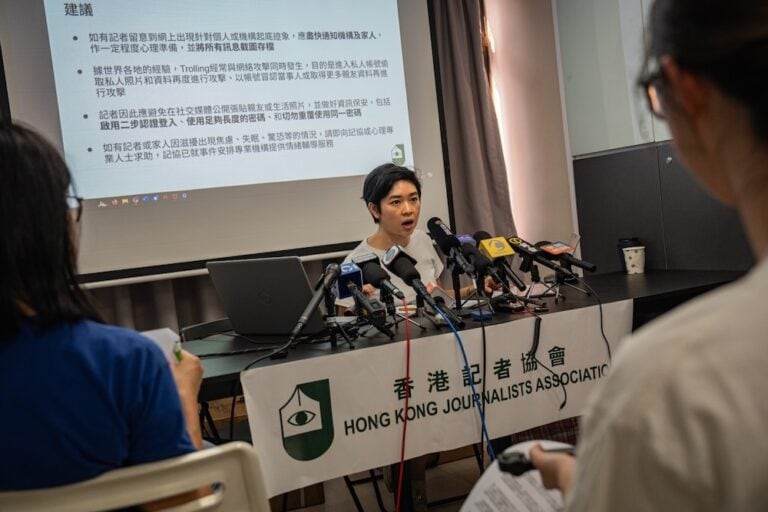"The electoral system has been gutted, prodemocracy and opposition activists arrested, independent media demolished, and internet freedom restricted. Put plainly: freedom has been crushed for the people of Hong Kong."
This statement was originally published on freedomhouse.org on 30 June 2022.
Freedom House urges Hong Kong authorities to halt attacks on political rights and civil liberties, calls for international support for exiled democracy advocates.
On the occasion of the 25th anniversary of the transfer of sovereignty over Hong Kong from Great Britain to China, Freedom House issued the following statement:
“The repressive environment in Hong Kong today is a travesty of the vibrant culture and media environment for which it was, until recently, known,” said Michael J. Abramowitz, president of Freedom House. “Since the passage of the National Security Law two years ago, the Hong Kong and Chinese governments have stripped millions of Hong Kongers of the fundamental rights guaranteed to them under local and international law. The electoral system has been gutted, prodemocracy and opposition activists arrested, independent media demolished, and internet freedom restricted. Put plainly: freedom has been crushed for the people of Hong Kong.
“Today marks not only the anniversary of the handover, but also the swearing in of Chief Executive John Lee, who was handpicked by Beijing to continue the crackdown – and who has already shown a penchant for silencing the Hong Kong press, who are prohibited from covering his inauguration. Democratic governments should continue to impose targeted sanctions on those responsible for ongoing violations of rights in Hong Kong, and support democracy advocates fleeing repression so that they can continue their work in exile.
“Freedom House has called on the UN Human Rights Committee to use its upcoming review of Hong Kong’s compliance with the International Covenant on Civil and Political Rights as an opportunity to highlight the government’s disastrous failure to uphold the rights of its people and its international legal commitments. This review is a vital mechanism for accountability.”
Background
On July 1, 1997, the United Kingdom formally passed authority over the territory of Hong Kong to the People’s Republic of China, ending 156 years of British colonial rule and establishing Hong Kong as a special administrative region (SAR) of China for 50 years. Under the Sino-British Declaration governing the handover, the Chinese government committed to maintaining a “one country, two systems” model until 2047, allowing a high degree of political and civil rights in the territory, even though those rights are not honored on the mainland. Although freedoms in Hong Kong have slowly deteriorated over the past 25 years, actions taken by authorities in Hong Kong and Beijing since 2020 have blatantly violated government commitments and demolished the “one country, two systems” model.
Since imposing the National Security Law (NSL) in Hong Kong on June 30, 2020, Beijing has intensified their assault on political rights and civil liberties in the territory. The Hong Kong authorities have jailed opposition activists, fully turned the Legislative Council into a rubber-stamp body, undermined the rule of law, and reduced internet freedom and individual privacy protections. Security forces have cracked down on independent media, raiding and forcing the closure of news outlets like Apple Daily and Stand News. At least 12 journalists and media professionals have been charged with sedition or crimes under the NSL for their work, and approximately 20 percent of Hong Kong’s Chinese-language media workers have lost their jobs. Political imprisonment has also escalated in the territory: at least 183 people have been arrested for national security-related crimes, and there are over 1,000 political prisoners in total.
Hong Kong enjoyed a relatively free and open internet before the introduction of the NSL, but authorities have increasingly censored internet users, many of whom self-censor, and have blocked several websites. New legislation allows the privacy commissioner for personal data to arrest users, order online content taken down, and block websites and platforms. Authorities can arrest local employees of overseas technology companies if their companies fail to comply with takedown requests, drawing a potential two-year prison sentence. To date, at least six people have been arrested and thousands of posts across 14 platforms have been removed.
In the past 15 years alone under the rule of the Chinese Communist Party (CCP), Hong Kong’s total score in Freedom in the World, Freedom House’s annual report on political rights and civil liberties, has dropped by 24 points, from 67 to 43, on a scale of 0 to 100. In Freedom in the World 2022, the score declined by nine points, marking the year’s third-worst decline globally after Myanmar and Afghanistan, which experienced a military coup and a takeover by the Taliban, respectively. Most countries and territories with deteriorating freedoms usually see their scores decline by a point or two in any given year.
Hong Kong is rated Partly Free in Freedom in the World 2022. China is rated Not Free in Freedom in the World 2022 and Not Free in Freedom on the Net 2021. Freedom House is following Hong Kong’s deteriorating conditions and their global implications in the monthly China Media Bulletin.



